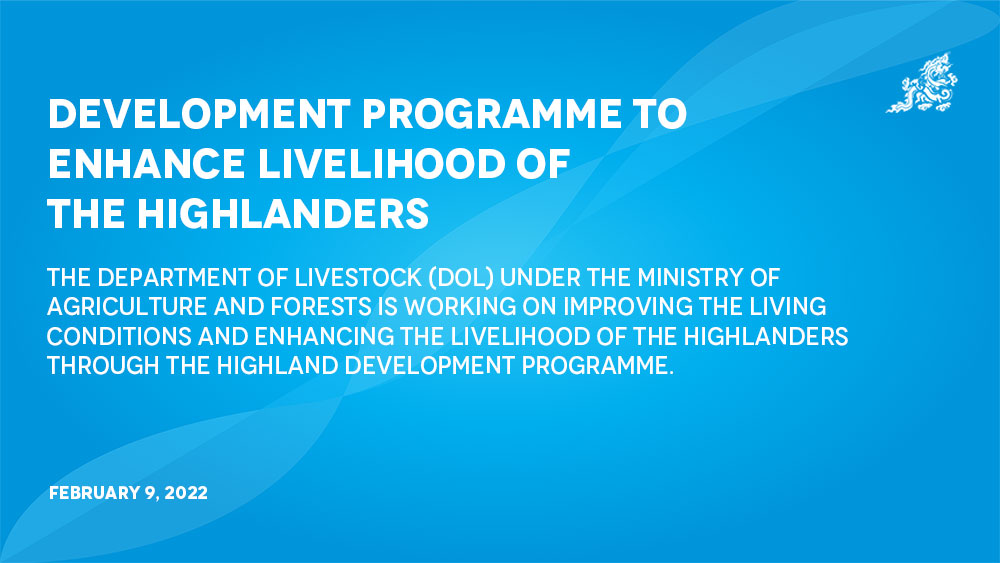Chhimi Dema
The Department of Livestock (DoL) under the Ministry of Agriculture and Forests is working on improving the living conditions and enhancing the livelihood of the highlanders through the Highland Development Programme.
The programme was included in the 12th Five Year Plan with a budget outlay of Nu 150 million.
The programme will establish enterprises for livestock products and focus on measures to improve the livestock breed of yaks, sheep, and horses through appropriate breeding technologies; improve fodder supply, and strengthen animal health services.
National Highland Research and Development Center programme director Vijay Raika (PhD) said that the programme has a committed fund to focus on yak product diversification (dairy and wool); genetic improvement of yaks, sheep, horse, and mastiff dogs; feed and fodder support, and gid disease elimination in yaks.
“Due to difficult terrain, scattered highland population and migratory lifestyle, mainstream development efforts have not been able to effectively reach these communities. Sporadic attempts were made in the 1980s by implementing a few highland development projects,” Vijay Raika said.
The programme will cover Haa, Paro, Bumthang, Thimphu, Trashigang, Trashiyangtse, Lhuentse, Wangdue, Trongsa, and Gasa with households that migrate with the yaks.
Gup Kencho Dorji from Soe gewog in Thimphu said that the programme is important to highlanders to ensure that their livelihood is secured from livestock, rather than relying solely on selling cordyceps.
“The cordyceps production is dwindling by the year, and the pandemic has affected earnings from tourism, so the highlanders have to depend on yaks for income,” he said.
Kencho Dorji said that the livestock department has helped with increasing the fodder and growing pastureland for the yaks.
According to records with the National Statistics Bureau, there were 40,897 yaks in 2020, and 41,918 yaks in 2019.
Through the programme, in April last year, the Bhutan Yak Federation was formed to encourage the highland communities to pursue a goal of prosperity, pooling, and exchanging resources and information.
Vijay Raika said that the Highland Development Programme was identified recognising the importance of highland communities from a traditional, sociocultural, and biodiversity standpoint, pinpointing a need for interventions to encourage highlanders to continue residing in the highlands.


